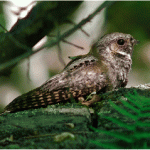Definition
noun, plural: migrations
(1) Passing from one part to another, said of certain morbid processes or symptoms
(2) Diapedesis, i.e. the emigration of leucocytes across the endothelium
(3) Movement of a tooth or teeth out of normal position
(4) Movement of molecules during electrophoresis
Supplement
Migration is the process or act of migrating, i.e. the movement from one region or place of habitat to another. Animals display the so-called migratory behavior. It is when an individual or a group of animals move from their habitat to the new habitat. One of the driving factors that led to this behavior is the season. A flock of birds for instance would move from one area to the new area during an unfavourable season. Immigration pertains to the migration of human(s) to a country that is not a native to it in order to settle there.
Migration may also occur at the cellular level. For instance, leucocytes may move towards the region where they are essential for their immunologic function. This movement is formerly called diapedesis, which in particular is the emigration of leucocytes across the endothelium.
Word origin: Latin migro (to move from place to place)
Related term(s):
- Cell migration inhibition
- Cell migration
- Gene Migration
- In-migration
- Leukocyte migration-inhibitory factors
- Macrophage migration inhibition test
- Macrophage migration-inhibitory factors
- Migration inhibition test
- Migration of ovum
- Migration theory
- Migration-inhibitory factor test
- Migration-inhibitory factor
Related form(s):






